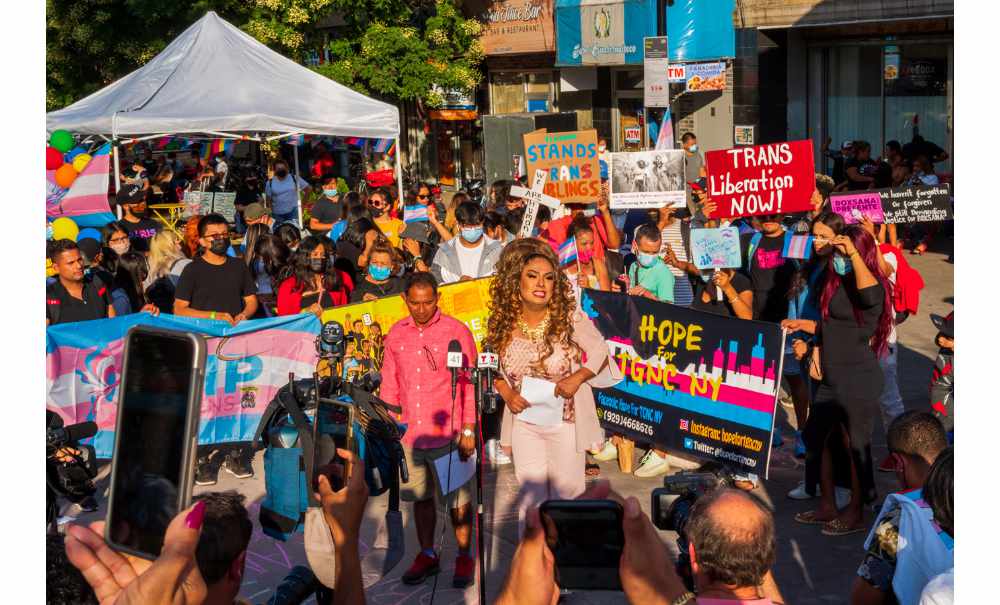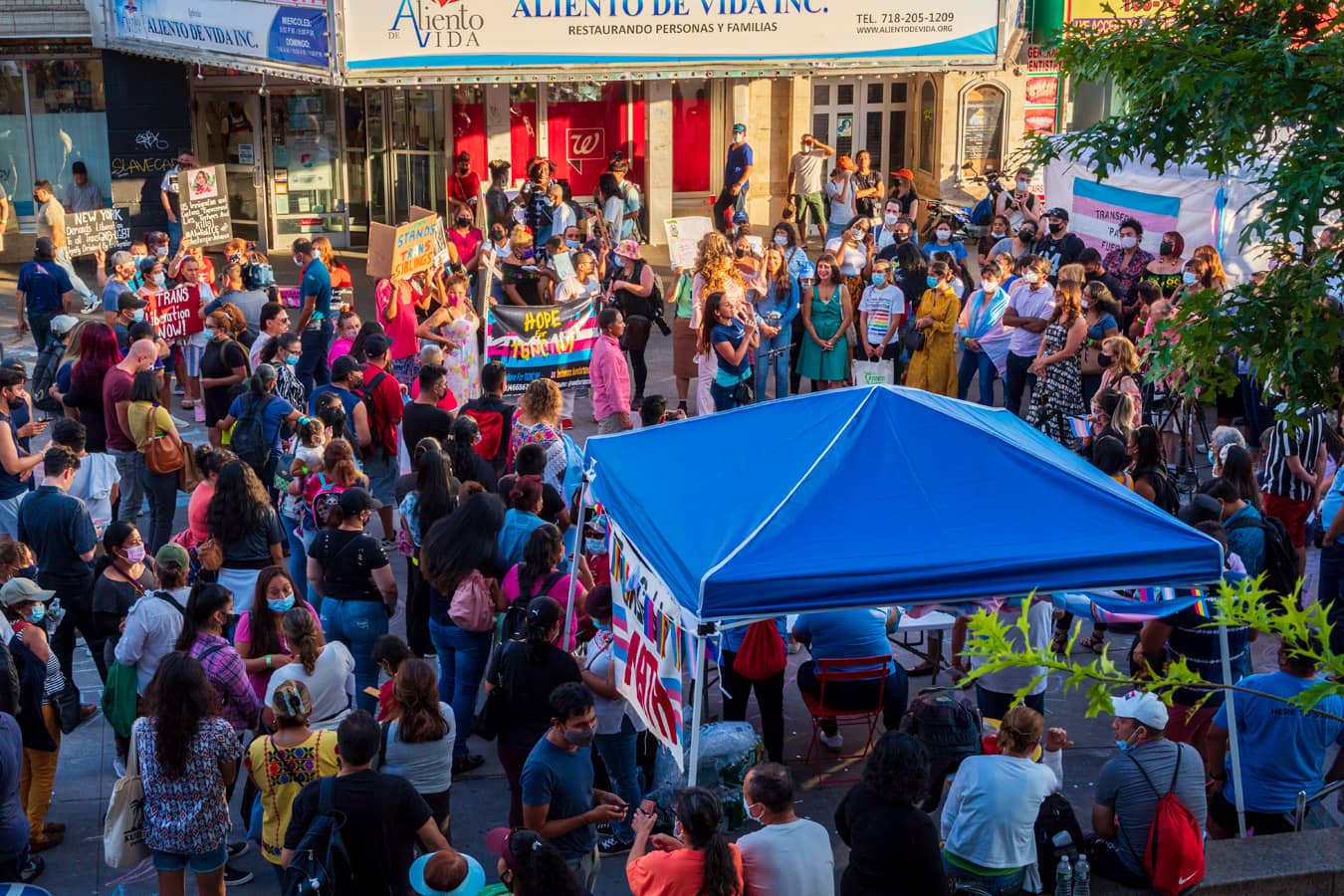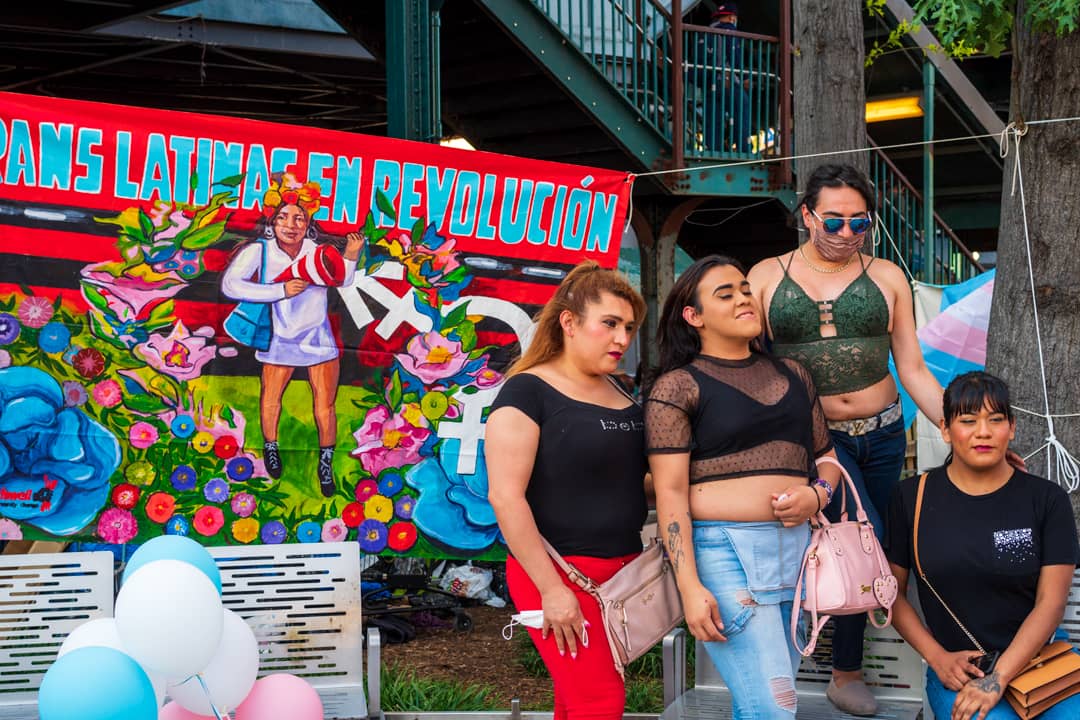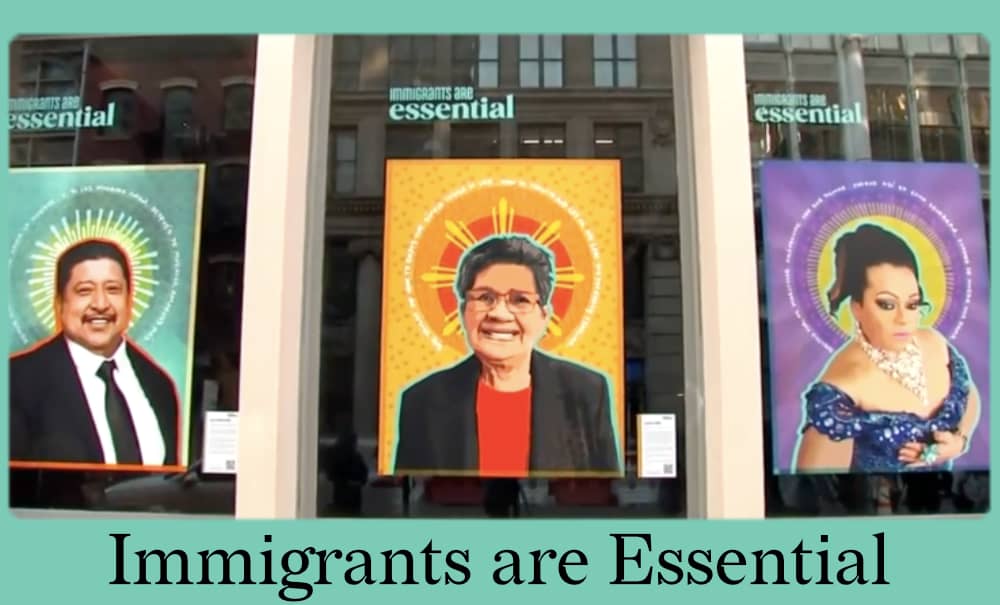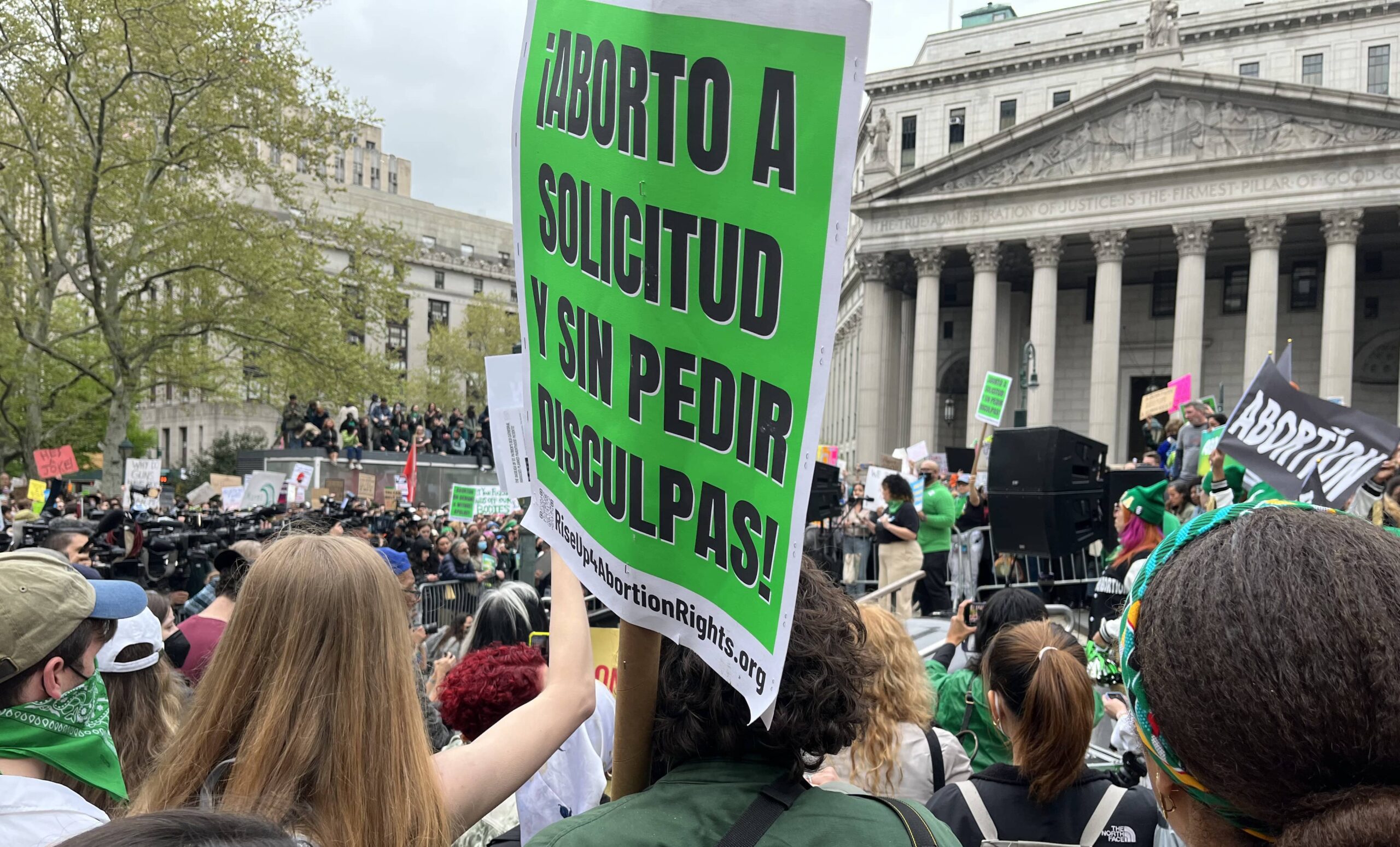
Dear friends,
Sometimes the face of violence is stark and hypervisible … like the latest nightmare massacre in a US school where, this time, 19 children are gunned down in a Texas border town. Or the spectacle of mass murder the week before in Buffalo, with 10 people killed by an avowed white supremacist with a semiautomatic rifle.
But violence can also be slow, and unspectacular, even invisible – at least to those who are not its target. This week we look at two scenes of less visible violence. We highlight the story of immigrant women of color, denied abortion rights and reproductive health care. And we report on an NYC-based immigrant justice group fighting the state violence directed at queer and LGBT detainees in the US.
Newsletter highlights:
- Reproductive Justice for Immigrants
- Queer Detainee Empowerment Project (QDEP)
1. Migrant Women and Abortion Rights
The destruction of abortion rights in the US has the biggest impact on women of color, a fact that is often missing in mainstream media. Even less widely reported are the specific obstacles faced by immigrant women of color who seek an abortion.
Black, Brown, and Asian immigrants often face reduced abortion access due to language barriers, a problem that only grows as the number of community-based clinics declines. Traveling to find an abortion provider is difficult, expensive, and risky, especially for undocumented people. Medical insurance may be hard or impossible to get without legal status. For women locked inside the public/private US immigrant detention system, regulations governing reproductive health are confusing, vary widely from facility to facility, and may change overnight when a detainee is relocated.
Already struggling against a wave of racist violence, Asian American immigrant women are subjected to an extra layer of scrutiny as a result of anti-choice laws that target “sex-selective” abortions. Supreme Court reactionary Clarence Thomas has alleged that this sort of “feticide” is a common practice among “certain populations in the US,” even though this racial profiling myth has been thoroughly debunked. (Asian American women actually give birth to more female babies than white women do.) Legislation denying abortion if there is “suspicion” that it is being used for sex selection is popular on the Right as a stepping stone toward the complete elimination of abortion rights. This profiling is already enacted as law in several states and has been proposed in many others (including New York), as well as at the federal level.
The lack of abortion rights for migrants is particularly dire today along the US southern border. According to advocates, a large percentage of the Latina, Caribbean, African, and Indigenous women who risk the dangerous land route through Central America are sexually assaulted or raped while in transit, making abortion access even more urgent.
However, migrant women who reach the US needing abortion services find little urgency. The Trump regime was able to populate the immigration system with anti-abortion fanatics, pushing already conservative agencies even farther to the right. Right-wing anti-immigrant agents and administrators treat immigrant women’s reproductive health rights as one more reason to criminalize and punish them. Immigration bureaucrats often drag their feet on making medical appointments, finding excuses for denying or delaying even emergency reproductive care.
“The Trump administration’s efforts to undermine access to reproductive health care for women and girls in immigration custody is exemplified by former Director of the Office of Refugee Resettlement Scott Lloyd. During his tenure, Lloyd did not approve a single request for a minor seeking abortion care; those who were able to obtain abortions did so only after court intervention.” –Center for American Progress
Lloyd is gone, but other anti-choice zealots remain, such as Roger Severino who, ironically, is head of Health and Human Services’ Office for Human Rights, which is supposed to oversee refugee resettlement programs for the Biden administration.
Immigrants incarcerated by federal agencies like ICE and the Border Patrol are subject to the abortion laws of the state where they are held. The drastic time limits imposed on abortion in Texas and other border states will result in the exclusion from reproductive care of even more migrant women who became pregnant during their journey north.
Texas and other states are also trying to criminalize easy-to-use medications that would allow safe abortions at home, painting women into a corner. They are aware that immigrant women of color often lack the money, childcare, and employment flexibility needed to seek abortion care in another state. For undocumented people living in border regions, this kind of travel is especially risky because of a web of Border Patrol checkpoints deployed as far as 100 miles inland. Today more than ever, large numbers of immigrant women are forced to weigh the risk of deportation against their abortion and reproductive health needs.
WHAT CAN WE DO?
- Join or donate to the Latina Institute for Reproductive Justice.
- Sign the National Asian Pacific American Women’s Forum statement opposing the repeal of Roe v. Wade.
2. Queer Politics of Immigration
“I think ultimately this is what we’re fighting for … the ability to be human. The ability to just laugh, and just get up in the morning and not worry that you’re going to get killed if you step out your door. We’re fighting for the ability to not have to worry about food, or not have to worry about shelter, or not have to worry about making the hard choices of, stay in my homeland, experience violence, [or] go to places like the US, experience a different kind of violence …. And I think at the very basic level, it’s just the ability to be human, and be in community, and not be afraid.” – Ola Osaze (interview, Black LGBTQIA+ Migrant Project, 2019)
Immigrants detained in the US face a host of dangers and vulnerabilities. But queer and LGBT and HIV+ detainees often face more specific challenges related to their gender identity or sexual orientation. Sometimes those challenges are, literally, life-threatening. In 2014, Jamila Hammami founded the Queer Detainee Empowerment Project (QDEP) here in NYC to address the state violence and structural barriers that target lesbian, gay, bisexual, transgender, queer, intersex, or asexual (LGBTQIA+) migrants. Operating in the first months out of Hammami’s living room in Brooklyn, QDEP has grown into a vibrant organization providing direct services to queer detainees and fighting for systemic change through community organizing.
“LGBTQIA+ migrant rights are invisible to the public,” notes Ian Zdanowicz, Co-Director of Direct Services at QDEP. “They often immigrate from their home country without family or support due to their identity not being accepted. When they are incarcerated in detention centers, there is an abundance of transphobia and homophobia.” With most advocacy and legal services for immigrants amplifying a ‘heteronormative’ narrative—one that presumes heterosexual marriage, family, or sexual practices—LGBTQIA+ immigrants lack a collective voice advocating for the specific resources that they need. QDEP is committed to building that voice.
In March 2022, QDEP in solidarity with Families For Freedom joined a national “Communities Not Cages” Day of Action, calling for an end to all deportations, and the closure of immigrant detention centers–including Orange County Correctional Facility in NYS. In 2021, the group distributed $240,000 to over 370 queer and trans immigrants in NYC to pay for rent, groceries, utilities, medication, and mental health services during the pandemic. They also connected over 40 queer and trans detainees with free legal representation for asylum hearings, and parole and bond proceedings.
Uchechukwa Onwa, the current co-director of QDEP, came to the US in 2017 after the passage of the Same-Sex Marriage Prohibition Act in Nigeria, his home country, criminalized LGBTQ relationships. Upon arrival in the US, he learned a quick and brutal lesson in ‘American’ racism and xenophobia when he was shackled at the airport, then driven to an ICE detention center where he was incarcerated for three months. “I know that there are so many other people like me who want to be safe,” Onwa says. How to promote that safety?
“At the end, it is our stories, as migrants. Our stories matter. And at the end it is our stories that are going to change that narrative.” –U. Onwa (2020 Deep Dive Interviews)
WHAT CAN WE DO?
- Volunteer with QDEP, or Pen Pal with QDEP members in detention. Email eliza@qdep.org for information.
- Join Immigration Equality to support the recent complaint filed with Homeland Security to investigate the Houston Asylum Office’s handling of Credible Fear Interviews for asylum seekers, including LGBT migrants.
In solidarity and with collective care,
Jackson Heights Immigrant Solidarity Network (JHISN)
Follow @JHSolidarity on Facebook and Twitter and share this newsletter with friends, families, neighbors, networks, and colleagues so they can subscribe and receive news from JHISN.
